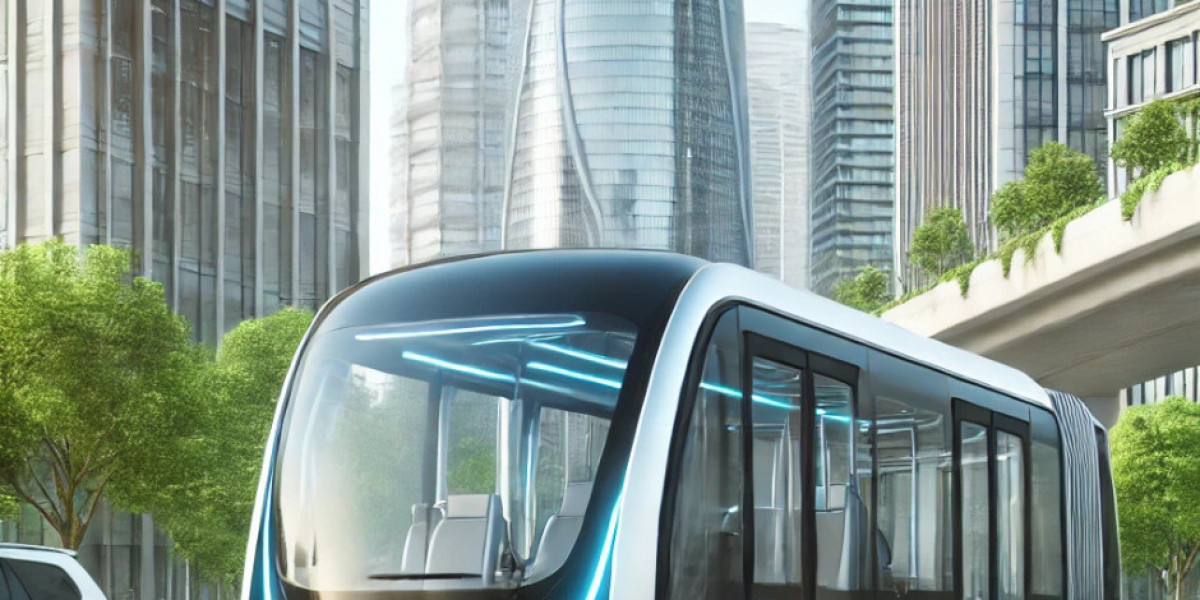The Sweden Automotive Electric Bus Market is experiencing significant growth, driven by the increasing demand for sustainable transportation solutions. Sweden, known for its commitment to reducing carbon emissions, is witnessing a rise in the adoption of electric buses as part of its broader environmental goals.
The market dynamics in Sweden indicate a shift toward eco-friendly alternatives to conventional diesel-powered buses. Several factors are contributing to this change, including government policies, advancements in battery technologies, and the growing focus on public health and sustainability.
The Swedish government has been at the forefront of promoting green transportation. In recent years, Sweden has set ambitious targets to reduce its carbon footprint by promoting clean energy alternatives across various sectors, including transportation. Electric buses play a crucial role in achieving these targets, particularly in urban areas where air quality and emissions are significant concerns. Additionally, Sweden’s well-established charging infrastructure and technological advancements in electric vehicle (EV) technology have further fueled the demand for electric buses.
Technological advancements are also driving the expansion of the Sweden Automotive Electric Bus Market. The development of high-capacity lithium-ion batteries has been a game changer, offering better range, faster charging times, and reduced operating costs compared to earlier generations of electric buses. This has made the adoption of electric buses more viable for commercial fleet operators. Moreover, Sweden's strong research and development ecosystem ensures that innovations in EV technology, including autonomous driving capabilities and vehicle-to-grid (V2G) technology, are consistently integrated into electric buses.
Market Dynamics:
- Government Regulations and Incentives: The Swedish government provides financial incentives, including subsidies and grants, for companies investing in electric bus fleets. Additionally, several cities in Sweden have implemented stringent emission standards, which are pushing transit operators to adopt cleaner technologies.
- Urbanization and Public Transit Demand: As urban populations grow, the demand for efficient, reliable, and eco-friendly public transportation systems increases. Electric buses, which offer lower maintenance costs and quieter operations, are becoming a preferred choice in urban areas.
- Environmental Awareness: Sweden has a high level of environmental consciousness, with citizens and policymakers pushing for sustainable mobility solutions. This has created a favorable environment for the adoption of electric buses, especially in cities like Stockholm, Gothenburg, and Malmö.
Get Detailed Market Analysis on Sweden Automotive Electric Bus Market with free sample report.
Market Trends:
- Zero-Emission Buses: A growing trend in Sweden is the widespread adoption of zero-emission buses, which align with the country’s goals of reducing carbon emissions and improving air quality. These buses are powered by electricity, making them an ideal solution for cities aiming to reduce their environmental impact.
- Battery Innovations: Battery technology is one of the key factors driving the electric bus market. Sweden is investing heavily in battery innovation, including solid-state batteries and other advanced energy storage solutions, to increase the range and efficiency of electric buses.
- Electrification of Bus Fleets: Major Swedish cities are adopting electric buses as part of their public transportation fleets. Stockholm, for instance, has been progressively transitioning to electric buses and aims to have a fully electric public transport fleet in the coming years.
- Integration with Smart Cities: As Sweden moves toward becoming a smart, connected society, there is a growing integration of electric buses with smart city infrastructure. This includes the use of real-time data to optimize bus schedules, reduce energy consumption, and enhance overall efficiency.
Investment Opportunities:
- Public-Private Partnerships: There is a growing opportunity for investment in electric buses through public-private partnerships. Government incentives and subsidies for electric buses make it an attractive sector for private companies to enter.
- Battery Manufacturing and Charging Infrastructure: As the demand for electric buses grows, there is an increasing need for advanced battery manufacturing and charging infrastructure. Investors have the opportunity to focus on these areas, supporting the growth of the overall electric bus ecosystem.
- Fleet Electrification Projects: Several transportation companies and local authorities in Sweden are investing in fleet electrification projects. These projects involve the purchase of electric buses and the development of supporting infrastructure, creating numerous investment opportunities.
Future Scope: The future of the Sweden Automotive Electric Bus Market looks promising, with several key trends likely to shape its growth in the coming years. The continued development of energy-efficient electric buses, coupled with advancements in autonomous driving technology, will further transform the public transportation sector. Additionally, as cities across Sweden look to meet their sustainability goals, the demand for electric buses is expected to continue rising.
Sweden is also likely to see an increase in cross-border cooperation on electric vehicle technology. The integration of electric buses with neighboring countries’ transportation networks could further boost the demand for electric buses. This could lead to opportunities for manufacturers to expand beyond Sweden into other Scandinavian and European markets, helping to accelerate the adoption of electric buses at a global level.
Innovations in the Sweden Automotive Electric Bus Market:
- Vehicle-to-Grid (V2G) Technology: One of the most exciting innovations in the Sweden Automotive Electric Bus Market is the adoption of V2G technology. This allows electric buses to interact with the grid, providing energy storage solutions and contributing to grid stability. This technology enables buses to discharge energy back into the grid during peak demand, thus helping to balance energy consumption.
- Autonomous Electric Buses: The development of autonomous electric buses is another key innovation. These vehicles can operate without human intervention, offering benefits such as reduced labor costs and improved safety. Sweden is actively testing autonomous buses in controlled environments, and it is expected that they will be integrated into public transportation systems soon.
- Wireless Charging Systems: Sweden is exploring the potential of wireless charging systems for electric buses. This innovation eliminates the need for physical charging stations and could streamline the charging process, allowing buses to charge wirelessly while in motion or when parked at bus stops.
- Smart Bus Systems: The integration of smart technology into electric buses is another area of innovation. These buses are equipped with sensors and communication systems that enable them to collect data on traffic, air quality, and passenger load. This data can be used to optimize routes and improve service efficiency.
The future of the Automotive Electric Bus market in Sweden holds immense potential, and the country is well-positioned to remain a leader in the shift toward sustainable, clean transportation solutions.
Automotive Airbag Fabric Market









